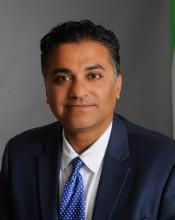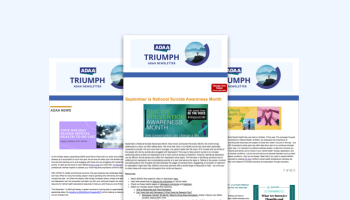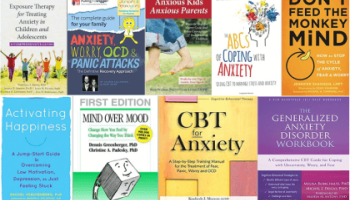Task Force Guidance for Anxiety Screening Should Open a Series of Mental Health Support Doors
Task Force Guidance for Anxiety Screening Should Open a Series of Mental Health Support Doors

As the old adage goes, there’s a first time for everything. In the field of psychiatry, we are cautiously celebrating a recent first-time recommendation by the US Preventive Services Task Force calling on primary care providers to screen all adults under the age of 65 for anxiety. The independent, volunteer panel of medical experts influences national guidance for improving healthcare and makes evidence-based recommendations about clinical preventive services. For me and many of my colleagues, it is indeed a step in the right direction that the group has prioritized anxiety in primary care practice. This marks a sort of opening of the first door to those who suffer from anxiety or have a related disorder.
Even before the pandemic, the United States was dealing, perhaps not so openly as now, with a pressing mental health crisis. This task force guidance brings to the forefront the need for more mental health screenings, something that we already knew in psychiatry, but what it also sheds light on is that the country has to find a way to keep up with demand. Everyone has anxiety – it’s part of being human. But the fact that anxiety has been recommended for screening may elevate its status to a medical symptom or condition that is worthy of further exploration.
But like any explorer, the medical health professional conducting the screening needs the proper tools, resources, and support to move forward with the discovery. Unlike screening for hypertension or diabetes, detecting anxiety can be a lot more challenging, and getting a valid and reliable screening tool is essential. Other obstacles to consider are that the screening may give a false positive result or symptoms seemingly related to anxiety disorders can be transient and resolved with time or that self-reported information may not be totally accurate.
So as my colleague and fellow ADAA member Dr. Luana Marques expressed in an article in MM+M, “Screening is a good idea but with the caveat of: what are we going to do once we screen?” Posing this question in today’s mental health environment is cause for anxiety itself. The number of mental health professionals to handle the current load of psychiatric conditions is insufficient as it is. What are we going to do when we get an influx of patients and we don’t have the clinicians, therapists, social workers or doctors to appropriately, fairly and efficiently treat them? This is particularly worrisome among ethnic, lower income, and BIPOC communities where demand is increasing faster than the supply of providers is capable of treating. As the laws of supply and demand suggest, we must find a way to balance the scales.
I cannot agree more with Dr. Marques, a past president of the ADAA, who is adamant that a strained system must be accounted for and that we must work together as a field to help our patients. The idea of having a primary care professional officially screen for mental health issues or disorders opens the door but what about all the other doors after that? We cannot keep closing them on our patients, especially when they are screened by their own medical providers and come to us for help.
Dr. Marques has said that any enhanced screening should be accompanied by a standardized referral, giving patients a pathway to a clinician trained to handle anxiety. This requires a system of communication, partnering, additional training, collaboration, and a continuity of care that unfortunately does not exist as extensively as it should in the U.S. healthcare system. This is even more disconcerting in our mental health system.
I believe that most of us in the mental health profession see this recommendation as an advancement. Some media sources have said the guidance couldn’t come at a worse time and likened it to a double-edged sword, but I like to think that a knife like that could cut through a lot of red tape and that the recommendation has come because it is needed.
The next consideration or perhaps even guidance from all of us should be about how to tackle the workforce shortage issue and for that, I open the door to discussion. As we open these Pandora's boxes in mental health, remember that we are not creating problems that weren’t there or that we didn’t know existed; we are just releasing them to be dealt with. For that, we need to think out of the box.












